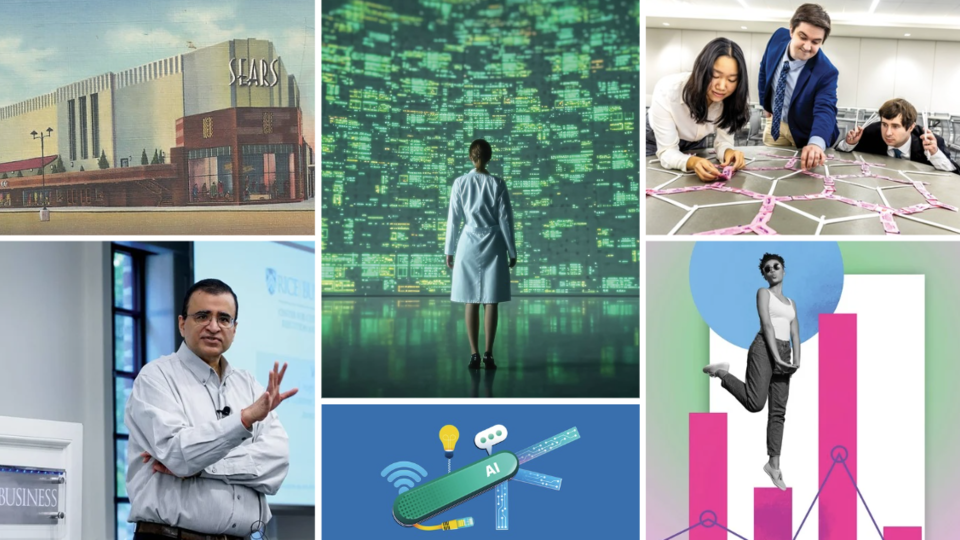From the Dean

The Future is Here: AI in Business Education
When I talk with our students today about preparing for the future of business, one topic rises to the top again and again: artificial intelligence. AI is no longer a futuristic tool waiting on the horizon — it is here, transforming industries, reshaping job functions and changing the way leaders make decisions. As a business school, it’s our responsibility to not only keep pace with these changes but to help lead them.
I recently served on a panel of deans discussing the future of AI. I was able to talk a bit about what we can offer students at Rice Business. For our students, AI is more than a skill set to list on a resume; it is fast becoming a foundational competency. AI certainly has ethical concerns, but our goal is to show students how to use it as a supplementary tool, one that can enhance the way they think about an issue or one that can serve as a tireless tutor for their work, continually making them better thinkers, doers and leaders.
Our undergraduates have BUSI 233 (“GenAI For Business: Tools and Implementation”) to help students on an introductory level, but we are also offering graduate-level elective courses like “AI Tools for Business Decision Making,” with Piyush Anand, assistant professor of marketing, or “Introduction to Generative AI for Business Applications,” with Kathleen Perley, an instructor in management who is also serving as an adviser on AI initiatives at Rice Business. Whether you’re an aspiring marketer using machine learning to understand customer behavior, a finance professional applying predictive analytics or an entrepreneur leveraging generative AI to prototype new ideas, fluency in these technologies is no longer optional. We must prepare our graduates to work with AI — critically, ethically and creatively — rather than fear being replaced by it.
For our faculty, AI is both a challenge and an opportunity. It challenges us to rethink teaching methods in a world where students may come to class having already asked ChatGPT to analyze case studies. But it also opens new avenues for research — from modeling global supply chains more accurately to exploring how algorithms shape consumer trust. Importantly, it forces us to engage with pressing questions: How do we ensure AI is used responsibly? How do we guard against bias? How can technology serve human ingenuity rather than diminish it?
At Rice Business, we see AI as a catalyst for innovation in the classroom and the workplace. Our graduates won’t just be proficient in AI — they’ll be leaders in shaping how it is deployed across industries.
Business education has always been about preparing students to lead in uncertain times. Today, uncertainty often takes the form of rapid technological change.
But these shifts are less a threat than an invitation: an invitation to think bigger, move faster and lead more thoughtfully.
— Peter


